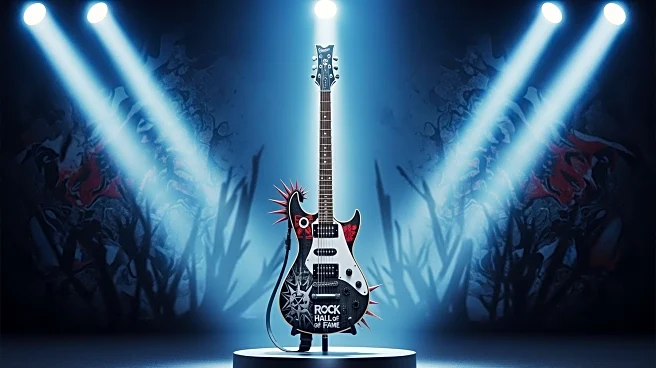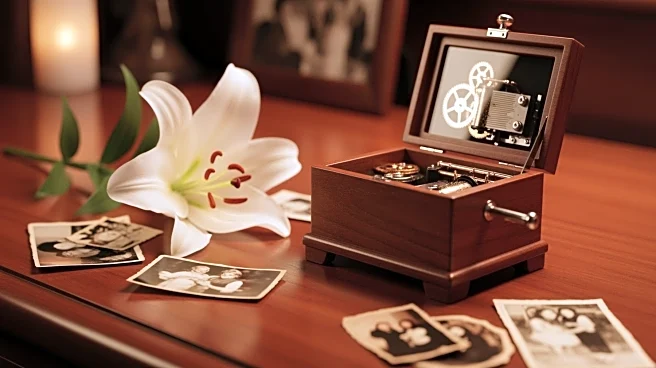What's Happening?
During his acceptance speech for The White Stripes' induction into the Rock & Roll Hall of Fame, Jack White highlighted the exclusion of punk and metal bands from the Hall. He named several artists he believes
deserve recognition, including Death, The Misfits, Fugazi, and Black Flag. White criticized the Hall's tendency to favor mainstream artists over those from heavier or punk genres. He encouraged young artists to pursue their passions and create music that resonates with audiences, sharing his own experiences with The White Stripes as an example of unexpected success.
Why It's Important?
Jack White's comments bring attention to the ongoing debate about the Rock & Roll Hall of Fame's selection criteria, which many argue are biased against certain music genres. By advocating for the inclusion of punk and metal bands, White is challenging the institution to broaden its scope and recognize the diverse contributions to rock music. This could lead to a reevaluation of how artists are selected, potentially opening doors for underrepresented genres. The inclusion of these bands could also validate the cultural impact of punk and metal, influencing future generations of musicians and fans.
What's Next?
The Rock & Roll Hall of Fame may face increased pressure to reconsider its selection process and criteria. Fans and artists from the punk and metal communities might rally for greater representation, potentially leading to changes in how nominees are chosen. The Hall could respond by expanding its advisory board or creating new categories to better reflect the diversity of rock music. Additionally, White's speech may inspire other influential musicians to voice their support for broader inclusion, further amplifying the call for change.
Beyond the Headlines
The push for inclusion of punk and metal bands in the Rock & Roll Hall of Fame highlights broader cultural shifts towards recognizing diverse artistic contributions. It raises questions about the role of traditional institutions in defining cultural value and the need for these bodies to evolve with changing musical landscapes. This movement could also spark discussions about the preservation of musical heritage and the importance of acknowledging all facets of rock history.









